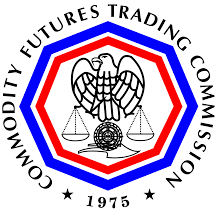Igor Oystacher had a dream legal team in his battle with the Commodities Futures Trading Commission (CFTC) which might make the original dream team blush.
 According to the docket from his case, where Oystacher was fined $2.5 million for spoofing, fifteen attorneys from three of the most powerful global law firms were representing him in his civil enforcement action against the CFTC.
According to the docket from his case, where Oystacher was fined $2.5 million for spoofing, fifteen attorneys from three of the most powerful global law firms were representing him in his civil enforcement action against the CFTC.
Fletcher Long
Fletcher Long is a former attorney who now covers law and politics in his home area. Long has previously tried two hundred cases to juries, including famous cases like the Vanderbilt rape case and the so-called “wooded rapist”.
Long noted that even the dream team from OJ’s murder trial – which included notables like Johnny Cochran, F. Lee Bailey and Alan Derschiwitz – had fewer than ten members. He also noted that, in his opinion, so many attorneys would put off the jury.
As it happened, Oystacher’s case was settled before it got anywhere near a jury trial – in December 2016, Oystacher and his proprietary trading company, 3 Red Trading, settled when the parties entered into what is called a consent order.
The use of so many attorneys for a negotiated deal, Long said, harkened back to the image of the tobacco companies and the John Grisham book and movie The Rainmaker, in which a large team of attorneys is brought into a negotiation as a tool of intimidation.
Paying fifteen lawyers would have cost Oystacher exponentially more than his fine of $2.5 million and suggests he’s made far more than that spoofing.
The Law Firms
The three law firms that represented Oystacher were: Dentons, Kobre and Kim, and Katten, Muchen, and Rosenman.
Katten, Muchen and Rosenman, which formed as a merger of firms that had been practicing for more than a century, has revenue approaching $500 million, operates on three continents and has offices in Chicago, New York, London, and Hong Kong.
Kobre and Kim was founded in 2002 by two former members of the US Attorney’s Office, Michael Kim and Steve Kobre. Honored by the industry journal, American Lawyer, as an elite law firm, Kobre and Kim have eleven offices on three continents including branches in Chicago, New York, London, Hong Kong, and the Cayman Islands.
While serving at the US Attorney’s Office, Michael Kim was the lead prosecutor of the Sterling Foster “pump and dump” scheme, which was an inspiration for the movie Boiler Room.
Dentons was founded in 2013, when three firms merged. The firm has over one hundred offices in major cities all over the globe including Chicago, New York, London, and Barbados, Amsterdam and Budapest.
Rachel Cannon, who was previously investigated by The Industry Spread, was among five attorneys from Denton’s who defended Oystacher against the CFTC. The others were: Jacquie Giannini, Kristina Liu, Steve Merouse, and Stephen Senderowitz.
Although this reporter called and emailed each of the fifteen attorneys and reached out to each law firm’s media relations department, Matthew Menchel from Kobre and Kim was the only one who responded. When asked why Oystacher needed so many attorneys for this case, Menchel said, “I don’t know how to answer that,” and hung up.
The Context
As The Industry Spread has been documenting, the CFTC is going through its budgeting process on Capitol Hill.
Chair of the CFTC Chrstopher Giancarlo has asked for $281.6 million total. The amount he asked for enforcement is $54,770,000.
A 2017 story in Forbes suggested the budget is not enough to take on the likes of Oystacher:
Big fraud allegations often mean big settlements will follow. But the settlements the Commodity Futures Trading Commission reached with former MF Global CEO Jon Corzine in early January and Igor Oystacher and his Chicago firm, 3Red Trading LLC, in December were surprisingly puny.
Now the reason why they were relatively small – $5 million and $2.5 million, respectively – has been revealed: The CFTC doesn’t have the funds to investigate and litigate many major cases any more.
It may just be that Oystacher intimidated the CFTC into accepting what they could.
An email to Dennis Holden, press person for the CFTC was left unreturned.
It’s noteworthy that such intimidation would not work if Oystacher was charged with a federal crime, which spoofing is – the CFTC can only bring civil actions.
The US Department of Justice has an annual budget of approximately $30 billion.
Rather than a heavy hitter intimidating them, the federal court system has a way of eating up the resources of extremely wealthy people. In one notorious case, former Chief Executive Officer of Qwest said the federal government had targeted him after he refused to go along with warrantless searches of Qwest’s customers and spent nearly $50 million defending himself on insider trading.
Nacchio said the judge refused his key evidence – which would have shown a purported meeting occurred after he sold shares – claiming it was too sensitive and he was found guilty.
Nacchio was released from federal prison in 2013 with most of his money gone.
As The Industry Spread has recently revealed, the US Department of Justice investigated Oystacher but has not filed any charges.








